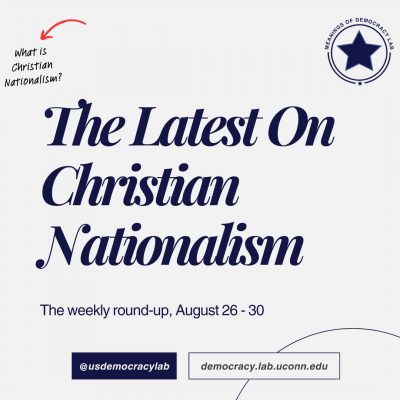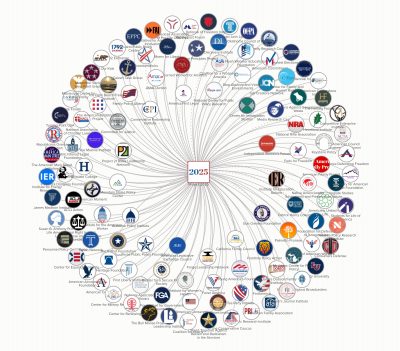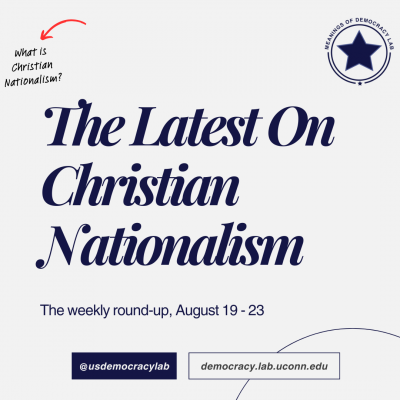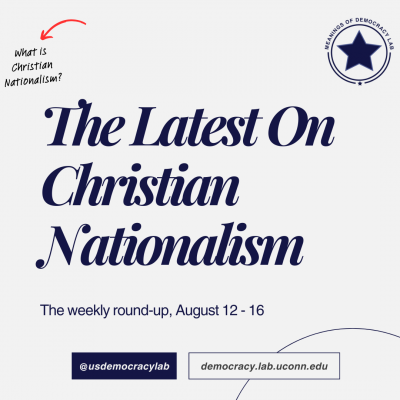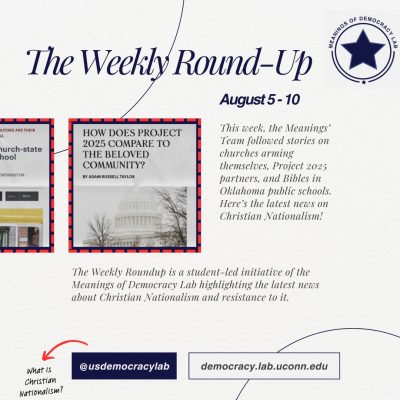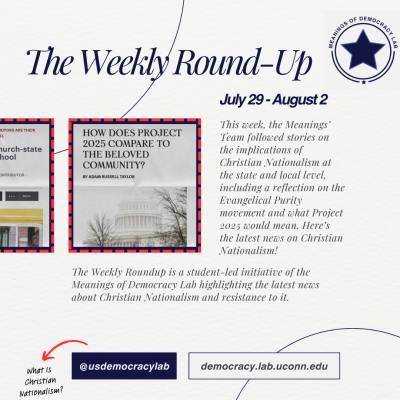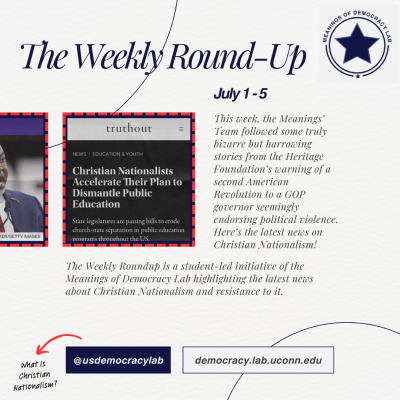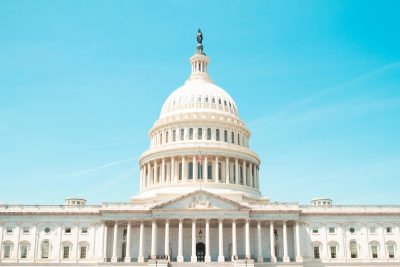
Director Ruth Braunstein was interviewed by Faith and Leadership on the Meanings of Democracy Lab’s Pluralist Resistance to Christian Nationalism project and Christian nationalism and resistance to it over the last decade. Thanks to a new $300,000 grant from the Henry Luce Foundation, Braunstein will scale up this work through a podcast and interactive web platform where users can explore various resistance efforts.
Where did our work begin? While writing her first book, Braunstein studied two competing views of American democracy—the tea party and a progressive faith-based community organizing coalition:
“In the tea party, we saw early rumblings of what we are now calling Christian nationalism, or what I sometimes call a more colorblind Judeo-Christian nationalism. When I was spending time with the faith-based community organizing group, I saw that they were providing a direct rebuttal to that vision of American democracy, which they envisioned as a multiracial pluralistic democracy.”
The rebuttal receives comparatively little attention, which legitimizes Christian Nationalism and makes diverse, interfaith, and pluralist Christian communities that present an alternative view difficult to locate.
Braunstein asserts that this research needs to be better investigated, communicated, and visualized. There is significant and growing organizing for resistance, however, these efforts are consistently overshadowed for many reasons:
“Many of the efforts are local, many of the efforts are not public-facing, many of the efforts are not explicitly using the term “Christian nationalism,” and they’re quite diffuse across different kinds of networks and sectors that make it difficult to point your finger at one thing and say, ‘Oh, this is a resistance to Christian nationalism.’ Part of the project that my lab is doing, with support from the Luce Foundation, is trying to map that field of resistance as broadly as we can.”
Follow us online and @USDemocracyLab for the latest updates on the project.
Grant funding for this project comes from the Henry Luce Foundation’s Religion and Theology Program, through an initiative seeking to “Advance Public Knowledge on Democracy, Race and Religion in America.”
The Henry Luce Foundation seeks to deepen knowledge and understanding in pursuit of a more democratic and just world. Established in 1936 by Henry R. Luce, the co-founder and editor-in-chief of Time, Inc., the Luce Foundation advances its mission by nurturing knowledge communities and institutions, fostering
